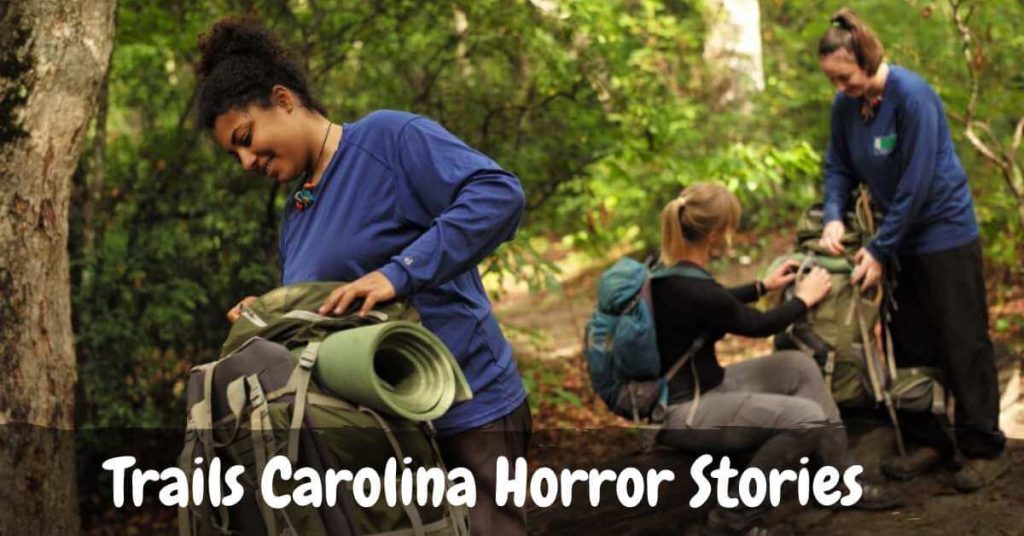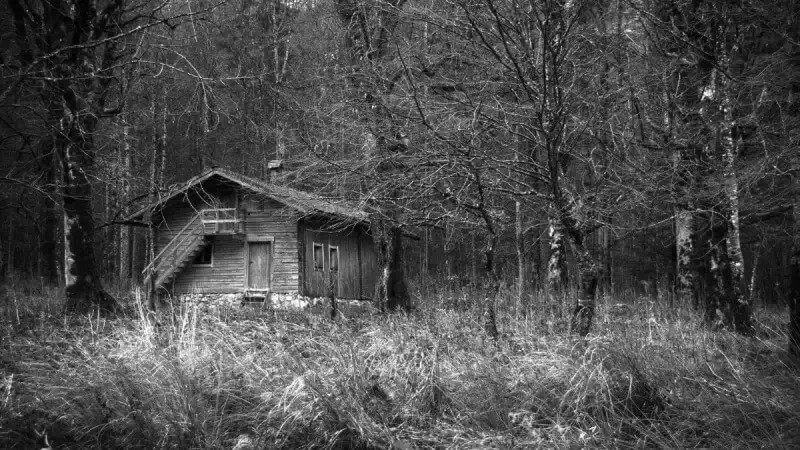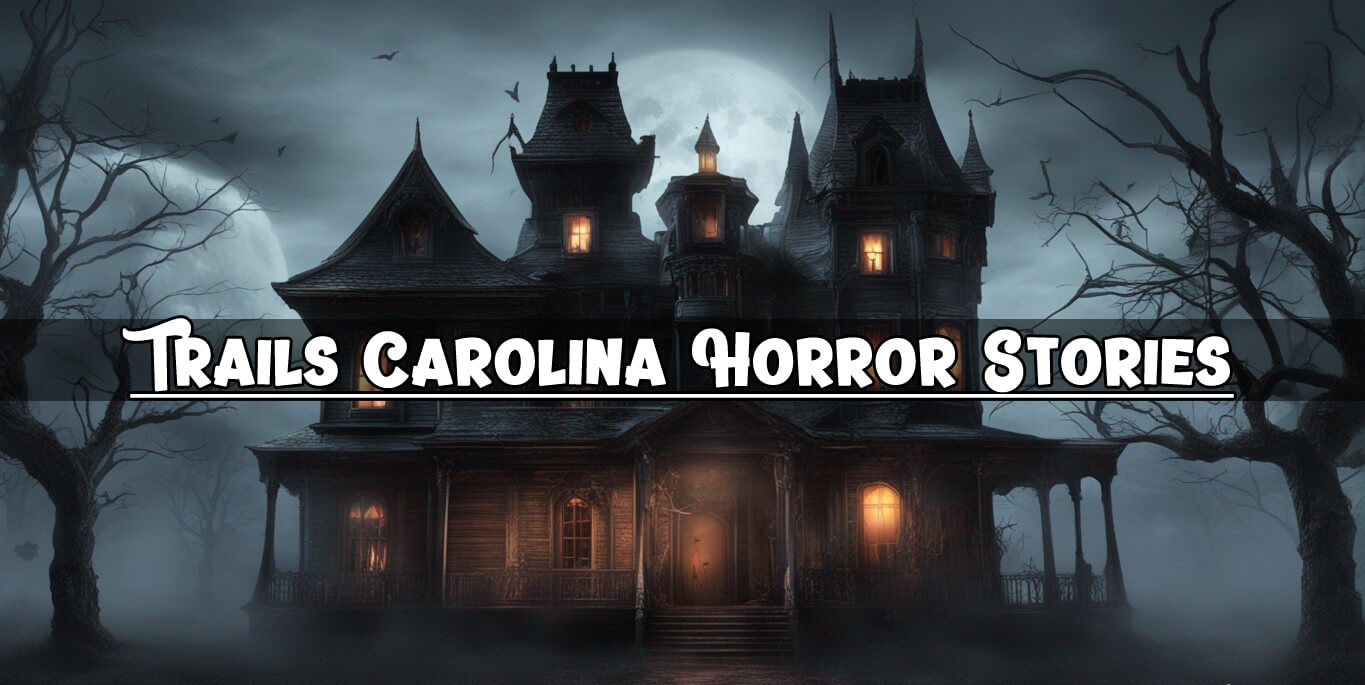In the wild, therapy program have been making news for a long time for a long time, with Trails Carolina at the forefront of this field. If you’ve been interested in what is happening within these programmes, prepare for a trip. We’re about to dive in “Trails Carolina Horror Stories,” where the idyllic outdoors meets the brutal realities of troubled teenagers in wilderness programs.
Teenagers who have to navigate the rough terrain and battling the elements and sharing their most personal secrets over an open fire. It sounds like a recipe for personal development, doesn’t it? That’s exactly the concept behind wilderness therapy however, this isn’t all about s’mores, inspirational sunsets. There’s a dark side of this kind of program, so it’s about time we get to the bottom of the issue. So, put on your seat belts as we look into some disturbing stories that could alter your perception of wilderness therapy for troubled teens.
Understanding Wilderness Therapy Programs
Before diving into the particular horror stories that surround Trails Carolina, it’s essential to comprehend the idea behind wilderness therapy programs. They are programs specifically designed to assist troubled teens who have a variety of emotional and behavioral problems. They typically involve outdoor activities as well as groups of therapy sessions with a focus on self-development and personal growth.
Although the concept for wilderness therapy is good, it’s an area that’s seen plenty of critique and debate. Many critics believe that some programs don’t have adequate oversight or regulations, which could lead to infractions and neglect. This set the stage to examine the stories related to Trails Carolina.
Alleged Horror Stories

Harsh Environmental Conditions
One of the biggest complaints of those who have been former attendees of Trails Carolina is the harsh conditions that they endured during their time at Trails Carolina. Participants face challenging outdoor activities, frequently in harsh weather conditions. This can include hiking across rugged areas, camping out in harsh weather conditions, and living in harsh conditions.
Some advocates claim they are vital for personal growth and character building However, some critics argue that they constitute the wrong treatment and abuse. Reports of participants suffering in frigid temperatures with no proper equipment or shelter have led to doubts regarding the safety and wellbeing of participants within the course.
Isolation and Deprivation
Another frequent theme of the horror stories related to Trails Carolina is the sense of isolation and lack of support the participants report feeling. To remove the barriers of resistance, a few wilderness therapy programs, including Trails Carolina, implement strict rules that prevent contact with external sources.
Participants have reported being cut off from their families, friends as well as the support systems they had prior to joining the program. They claim that this isolation could exacerbate feelings of anxiety, loneliness and despair that are common in troubled teens.
Allegations of Abuse
The most frightening horror stories are those that involve allegations of violence in the program Trails Carolina. Although the website of the organization stresses safety and therapeutic support Some ex-participants and family members have accused staff members of emotional, verbal, and physical abuse.
The allegations are based on employees using intimidation techniques or humiliation as well as harsh disciplining tactics. Some critics argue that these tactics could cause trauma to teens already at risk and could worsen their mental health problems.
Lack of Professional Oversight
One of the most frequent complaints in the critiques for wilderness therapy programs, including Trails Carolina, is the lack of oversight by professionals. Contrary to traditional therapeutic settings these programs usually depend on wilderness instructors with different degrees of experience and training in the field of mental health.
Participants have expressed their frustration over what they believe is the absence of qualified mental health professionals within these programs. They claim that proper diagnosis and treatment of mental health issues are usually overlooked in favour of group activities and outdoor interactions.
High Costs and Financial Strain
While it’s not directly linked to the wellbeing of the those who participate, high expenses related to Trails Carolina and similar programs are also a source of dispute. A lot of families who choose wilderness therapy programmes are struggling financially because of the mental and emotional issues that their kids face.
The expense of enrolment that can be as high as the tens of thousands is a major cost on families, and it may not always produce the outcomes you want. There are horror stories are about families who have put a lot of money into the program, only to discover that the program did not offer the assistance they expected.
Limited Accountability
Another issue that comes up in a lot of horror stories that are associated with Trails Carolina is the perceived inability to hold the company accountable. The critics claim that the wilderness therapy industry is operated with little oversight and regulation and it is challenging for people to get help in the event of issues or concerns.
The lack of transparency could result in a feeling of insecurity among families who feel their voices aren’t heard. It raises concerns about the ability of the industry to manage itself and ensure the safety and security of the participants.
Comments from Trails Carolina
In reaction in response to the horror stories as well as criticisms Trails Carolina and other wilderness therapy programs have taken action to address the concerns and enhance their services. They claim that their main objective is to assist troubled teens, and they have a commitment to providing the best possible therapeutic and safe environment.

Trails Carolina has highlighted the importance of having trained and certified staff members in addition to safety procedures and compliance with ethical standards. They also have highlighted their positive experience of a number of participants who have benefitted of the course.
It is important to note that there are a few participants who and their families have had negative experience with Trails Carolina, and there are many success stories in which troubled teens have experienced the healing they need and have gained personal growth from their involvement in the program.
The Importance of Research and Due Diligence
With the numerous controversy and horror stories concerning Trails Carolina and similar wilderness therapy programs, it’s vital for parents and guardians to conduct extensive research and do their homework prior to taking their children to these programs.
- Talk to a Mental Health Professional Ask for the assistance of mental health professionals who can evaluate your child’s needs specifically and suggest appropriate treatments. The wilderness therapy might not be the ideal choice for all teenagers, so it’s important to think about your child’s specific needs.
- Examine Credentials of the Program: Study the qualifications and credentials of the personnel and their experiences in the field of mental health and outdoor education. Check that the program conforms to safety and industry standards. guidelines.
- Request References: Request your program to provide references of previous participants as well as their families. These could provide valuable information into the effectiveness of the program and the experience of those who have been through it.
- Visit the program If you are able, visit the school in person to review the living conditions, security measures, and the overall atmosphere. This will help you make an informed choice about whether the program is a good suitable for your child.
- Know the costs: Be aware about the program’s cost and financial obligations. Discuss options for payment and financial assistance should you require it.
FAQs – Trails Carolina Horror Stories
What exactly is Trails Carolina in addition to what’s the principal function?
Trails Carolina is an wilderness therapy program that is designed to aid troubled teenagers who have a variety of emotional and behavioral issues. Its main objective is to offer therapeutic activities in a natural setting to encourage personal growth and self-discovery.
What is wilderness therapy programs? And what are their benefits?
It is a must to participate in wilderness therapy programs, such as Trails Carolina, involve outdoor activities as well as group therapy sessions and a focus on personal growth. Participants are challenged by outdoors activities while receiving therapy support to deal with their behavioral and emotional issues.
What is the reason for horror stories that are associated with Trails Carolina?
Horror stories related to Trails Carolina typically revolve around accusations of harsh environmental conditions as well as abuse, isolation and worries about the absence of oversight by professionals and the excessive costs. It is important to remember the fact that those stories originate from personal stories and might not be representative of the experience of everyone.
What kind of environment are participants of Trails Carolina program face?
Many participants have to face challenging outdoor activities on rough terrain, and can stay in harsh weather conditions. While some claim that these conditions foster character building but critics say they can be a sign of the wrong-doing of others and a lack of respect for each other.
What is the way in which deprivation and isolation are addressed How are deprivation and loneliness addressed in Trails Carolina programs?Some participants report being isolated of their family and friends due to the strict rules of communication. The program is designed to reduce resistance, but critics say that loneliness can cause the feelings of loneliness, anxiety and hopelessness.
Do you know of any allegations of abuse in Trails Carolina?
Yes, family members and former students have complained of physical, emotional, and verbal physical abuse from staff members. These accusations have raised questions regarding the treatment of vulnerable teens in the program.
What steps have Trails Carolina taken to address these issues?
Trails Carolina has stressed the importance of properly trained and certified staff members as well as safety protocols and compliance with ethical standards. They have also highlighted the positive experiences of participants who enjoyed the program.
Parents should think about wilderness therapy programs such as Trails Carolina for their troubled teens?
Parents must do extensive research, talk with mental health professionals and be sure to review the credentials of the program and its experience prior to registering their child. The wilderness therapy is not suitable for all teenagers and each child’s individual situation should be considered.
What parents can they do to guarantee the safety and security of their child during these activities?
Parents should seek out advice from medical professionals who specialize in treating mental illness, research program credentials, seek references, go to the program, if you can and be aware of the financial and cost implications before making a choice.
Are there any success stories of success stories Trails Carolina or similar programs?
Yes, there are successful stories that show troubled teenagers have experienced the healing they need and have gained personal growth through their involvement within wilderness therapy programs such as Trails Carolina. Positive outcomes are achievable however careful planning and research is essential.
Summing Up
Trails Carolina as well as wilderness therapy programs similar to it have proponents and opponents. While certain families have experienced positive results and transformational experiences, others have told horror stories of the harsh conditions, abuse allegations, and inability to hold them accountable. Check Is [email protected] Best For Online Advertising?
If you’re looking to enroll a troubled teen into an wilderness therapy program It is crucial the parents as well as guardians assess the credibility of the program as well as seek out professional guidance and study the track record of the program. In the end, the wellbeing and security of the teenager must be the primary concern making informed decisions is vital to achieve the objective.
